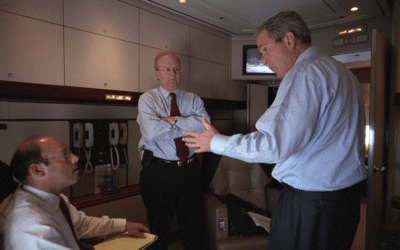All the negatives predicted for Obamacare (the Patient Protection and Affordable Care Act) are coming to pass. But what would you expect of a program in which the government defines the insurance product that (licensed) companies must offer and people must buy, sets the terms of coverage, issues strict price rules, subsidizes buyers and sellers — and calls the resulting crazy-quilt scheme marketplace competition? Obviously, when the scheme finally collapses, it is assuredly will not be a market failure. It will yet be another government failure.
When Obamacare was first being constructed, many economically informed critics said that trouble surely lay ahead. You cannot expect a good outcome when the government redefines insurance so that policies must cover existing illnesses and that people who are already sick cannot be charged premiums that accurately reflect their known demand for medical services. Insurance addresses uncertainty, so coverage for already known conditions and guaranteed demand for services is anything but insurance. (What’s next, homeowner’s insurance to cover an already burning house?) To be blunt, it is welfare, but it is off-budget welfare since insurance companies shift the cost to their healthy policyholders — which is another part of the problem.
If already-sick people can’t be charged accordingly, young healthy people must be charged more than they’d be charged in a free, competitive market — or else the insurers will go out of the business. (Maybe that’s the point.) But the high price drives young healthy people out of the government-regulated market, leaving insurance companies with mostly older sicker people who can’t be charged the full cost. The penalty for defying the insurance mandate is lower than insurance premiums, and if uninsured people get sick, they can always sign up for coverage because they can’t be turned down. Then when the bills are paid, they can drop their policies. As economists say, incentives matter.
Moreover, subsidizing medical insurance, which Obamacare does for many people (and not only poor people), is equivalent to subsidizing the demand for medical services; that in turn pushes up the price of services, again prompting insurers to raise premiums. Thus Obamacare’s ominous promise to contain medical costs has gone unfulfilled because the system works in the opposite direction. The laws of economics cannot be repealed no matter how zealously one tries.
The resulting financial losses for insurers is driving companies out of the system, leaving customers with fewer choices, inferior coverage, and higher prices. The latest report says one in five people in the government’s contrived “marketplace” has only one company to patronize. What do defenders of the system propose? More subsidies, which merely shift the problems from policyholders to taxpayers and, considering the budget deficit, future generations. (Medicare faces trillions in unfunded liabilities.)
The best that Obamacare defenders can say is that the system is better than its predecessor. Whether that is true or not, who cares? The previous system was saturated with corporatist government rules and tax distortions. Obamacare merely built on it. The comparison should be with how a free market would operate. But when I say free market, I mean freed market. What serves consumers best is competition and entrepreneurship. So all government barriers to competition — which always serve special interests — must go: licensing for practitioners and insurers, special tax treatment for employer-provided insurance, mandated coverage, state insurance boundaries, and all the rest. The key to sanity is free competition and cost-conscious consumers. We have neither now, nor did we have them pre-Obamacare.
What about the poor and the sick? Radically freeing society and the market would be the best cure for poverty. And low-income people can be impressively resourceful when the government stays out of their way. The institution known as “lodge practice” (see David Beito’s article) proves this. It is sad that Americans are unfamiliar with the mutual-aid movement that played such an important role earlier in history. As for people too sick to quality for insurance, they will benefit from the falling price of medical care, innovation, and entrepreneurship that competition will produce and the generosity that inevitably flows from a free and prosperous society.
We cannot rule out the possibility that some proponents of Obamacare knew their nutty system would fail, intending to use that failure to push, finally, for a fully government-run system — “Medicare for all.” We are already seeing insurance companies indicted for what’s happening. It won’t belong before we hear: “We gave market competition a chance, and it did not work. We have no choice but to put everyone on Medicare.”
We need have no affection for insurance companies, which are creatures of state privilege and regulation, to see what’s wrong with that claim. And, as has often been said, if you think medical care is expensive now, just wait until it is free. Get ready to stand in long lines and have bureaucrats control medical spending.
It’s time to try what has not been tried in full: competition, entrepreneurship, and markets.































